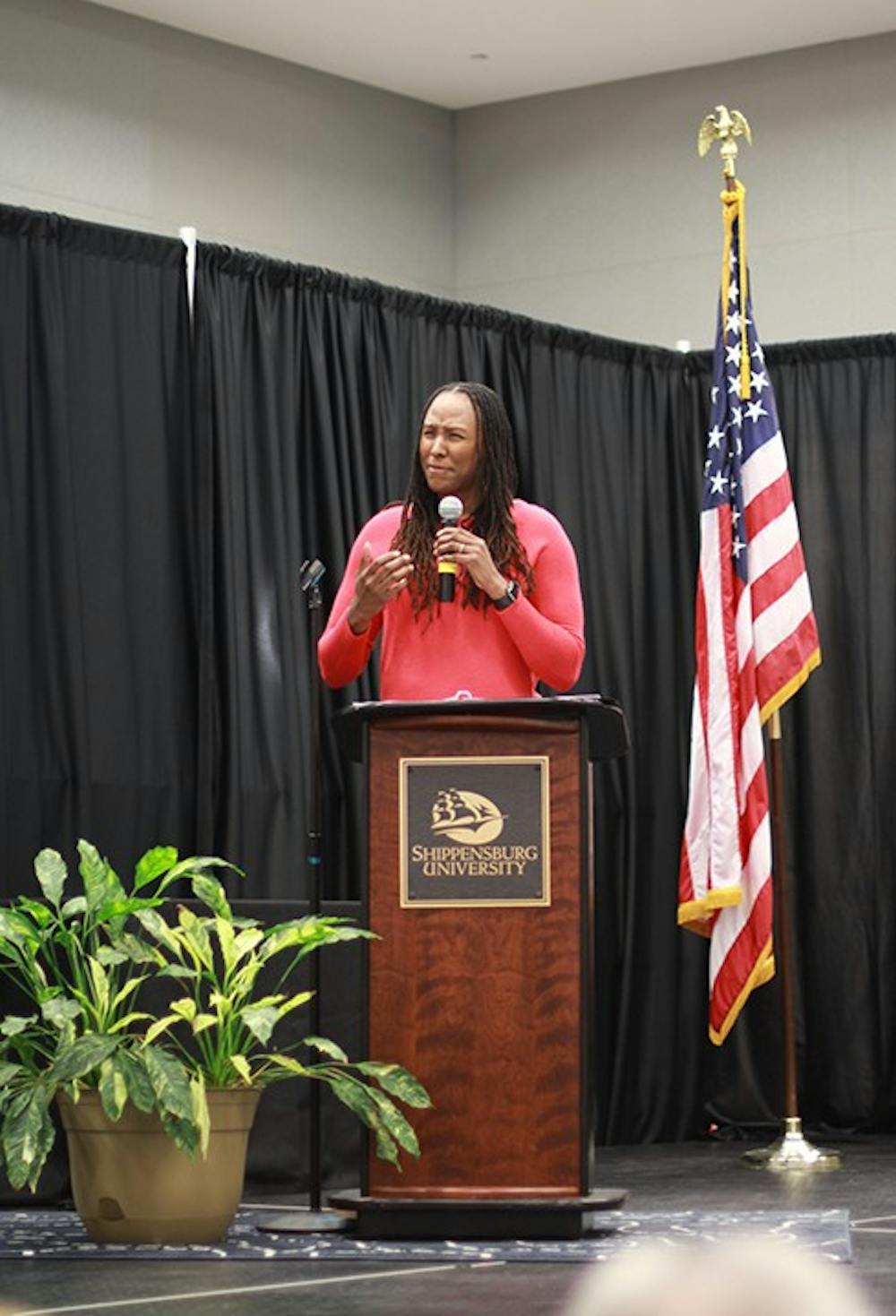Chamique Holdsclaw shared her struggles with mental illness in hopes to educate others about how they can get help during a lecture on March 7 in the Ceddia Union Building MultiPurpose Room.
When Holdsclaw was 11 years old, she experienced trauma from her parents’ separation, and both of her parents were alcoholics. Because she could not control what was happening in her personal life, she turned to something that she could control — basketball. It was something that she needed, and she put all of her energy into it.
“It became like my drug. It became my coping mechanism, and I was able to take out all of those frustrations and anger,” Holdsclaw said.
She said because she was so good at playing, everyone catered to her and did not let her express herself.
Instead, she turned to writing articles to express her emotions.
Holdsclaw went to the University of Tennessee, which was very different from her hometown in New York.
In college, she began to feel down and struggled with many emotional battles. Being a student athlete was hard, she said.
“They don’t tell you that it’s gonna be some of the hardest work that you put in. You’re not just going there to play a sport,” Holdsclaw said.
After winning the championship her freshman and sophomore years, she still did not feel happy and decided to tell her coach. She talked to the sports psychiatrist, but she did not want her team to know about it. Instead, she decided to see a therapist off campus, but she stopped going because she did not want to talk about her parents.
Holdsclaw’s father was diagnosed with schizophrenia, so she decided to do some research about it. She was embarrassed and ashamed because she could relate to some of the symptoms.
She was drafted to play in Washington, D.C., but still felt empty and alone, and she learned how to mask her feelings. She felt detached.
In 2002, her grandmother died, and Holdsclaw disappeared for three days. However, basketball is a business, and she needed to be healthy, but she also needed to be on the court. She went back to therapy and was diagnosed as suicidal.
After dropping everything and traveling to Spain to play basketball, she moved to Los Angeles, California. She was put on the right medication, and everything felt OK again. Holdsclaw stopped taking her medication because she felt fine. Soon afterword she began taking her medication again and drinking alcohol. Holdsclaw overdosed and had to be taken to the hospital.
“It was like I had that ‘ah-ha’ moment with God. I said ‘God, you got me through this,’ I said. ‘I have to make a change,’” Holdsclaw said.
She began to have manic episodes and could not sleep. The mania caused her to become irrational, and she had five felony counts against her. She turned herself in, and was put in the mental health ward. She was only allowed outside of her cell one hour a day. When her mother talked to her, she realized Holdsclaw had mental health issues.
After getting out of jail, she returned to Knoxville, Tennessee. She said she is still here because of other people, and people want to talk to her about her story. Holdsclaw encouraged the audience to talk to others about what they are feeling.
“It’s my responsibility to help this conversation and get it started. I hope this is something that’s like a wave and it ripples through,” Holdsclaw said.





The Slate welcomes thoughtful discussion on all of our stories, but please keep comments civil and on-topic. Read our full guidelines here.